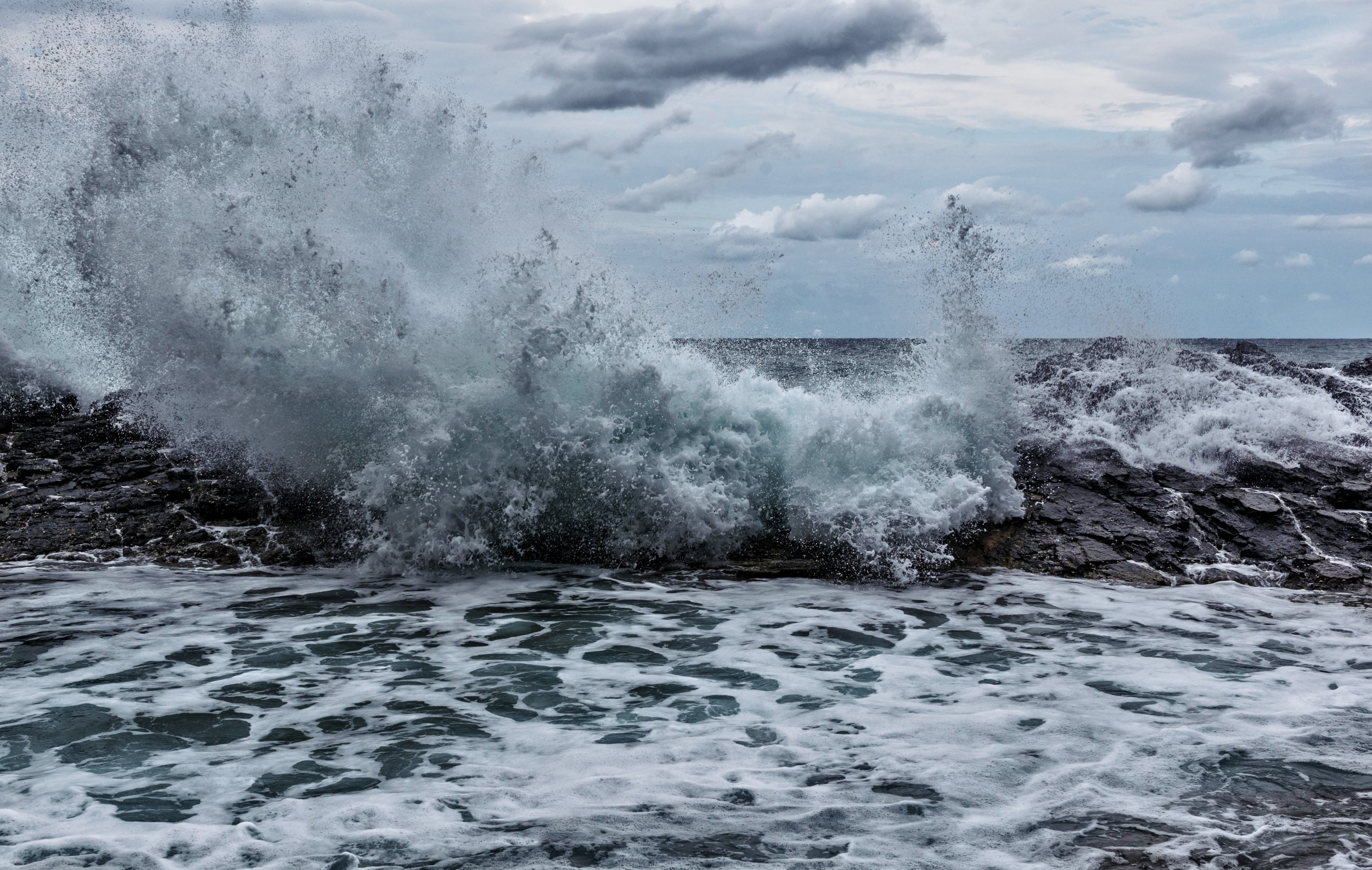
Extreme ocean winds and waves have become more common over the past three decades, according to scientists who warn climate change could be causing the trend.
A team of experts at the University of Melbourne, in Australia, reviewed around 4 billion observations of wind speed and wave height captured by 31 satellites between 1985 and 2018.
Overall, the study published in the journal Science indicated oceans appear to have become stormier. This has implications for coastal communities, as storm waves can erode beaches and cause flooding.
The biggest increases in extreme winds were found in the Southern Ocean. There extreme winds increased by approximately 1.5 meters per second, or 8 percent, over the last 30 years. Extreme waves in this same region increased by 30 centimeters or 5 percent.
On average, winds were increasing at a faster rate than the waves, Professor Ian Young, study co-author and an expert in physical oceanography and marine and ocean engineering at the University of Melbourne told Newsweek.
Extreme events in the Southern Ocean can impact beaches in the Southern Hemisphere, as this is where ocean swells in the Indian Ocean, the Southern Atlantic and the Pacific are generated.
"Although increases of 5 percent for waves and 8 percent for winds may not seem like much, if sustained into the future, such changes to our climate will have major impacts," Young said.
The study was limited, however, because while the team used a very large database, Young said the world's oceans are vast and satellites miss some storms, which may make the findings biased. And the data set only goes back 33 years, when the satellites were first put in orbit.
Yet the trends still warrant concern, suggested Young. It remains unclear if climate change caused the extreme events noted by the researchers, but the historic record seems to suggest a link, he said.
"Sea level rise is still the most significant climate-change signal we are seeing in the oceans. Changes in winds and waves will further enhance the damage sea level rise will cause. The results, however, show that the climate is linked in many ways and that a changing climate system is likely to have many cascading impacts."
"When people think of sea level rise they are concerned by the potential flooding that will result. Over the next century, however, the biggest source of coastal flooding will still be storm events," he explained.
"What sea level rise will do is increase the severity and frequency of these storm-related flooding events. If extreme waves are increasing in magnitude, it will further increase the impact of these flooding events and also have major impacts on the erosion of beaches." And bigger ocean waves could also contribute to the break-up ice sheets, he warned.
"As with all climate-related change, the message is clear," said Young. "We need to limit the production of greenhouse gases. Only through coordinated and significant global efforts will we address rising greenhouse gas levels."
Last week, a separate study that looked at the potential public health impact of climate change suggested global warming could worsen the spread of microbes that are immune to the drugs and substances we use to kill them, such as antibiotics. The work was presented at the 29th European Congress of Clinical Microbiology and Infectious Diseases (ECCMID).
Uncommon Knowledge
Newsweek is committed to challenging conventional wisdom and finding connections in the search for common ground.
Newsweek is committed to challenging conventional wisdom and finding connections in the search for common ground.
About the writer
Kashmira Gander is Deputy Science Editor at Newsweek. Her interests include health, gender, LGBTQIA+ issues, human rights, subcultures, music, and lifestyle. Her ... Read more
To read how Newsweek uses AI as a newsroom tool, Click here.








